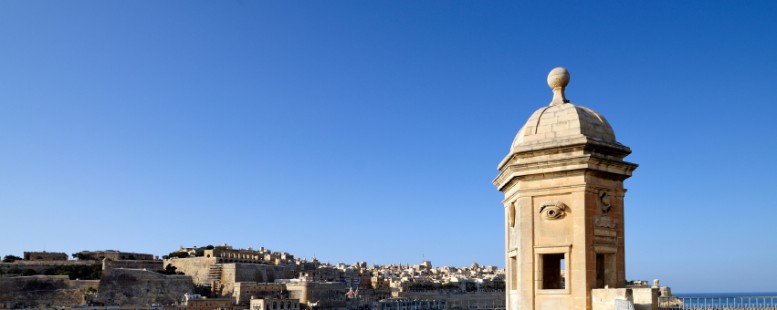Our Opinion: 2015
How can a country boost its GDP by 25%?

I am back in Malta for the third time in a year, visiting local entrepreneurs and providing financial planning advice. The island covers just 122 square miles. It has few natural resources and a population of just 424,000. It has to be creative to keep the country’s coffers filled. With a strong corporate base, Malta sailed through the economic crisis relatively unscathed. Its economy grew 3.5% in 2014 and unemployment is just 5.8% – the fourth lowest in Europe.
As well as meeting local residents, I have observed that the hotels and high end boutiques are busy with a clientele that you would not usually associate with the visiting tourist market.
Malta is one of the countries offering an Investor Immigration Programme. In January, I wrote about “Passports for sale,” (see news) highlighting the impact that the Portuguese scheme was having on its economy. It looks like the Maltese version is also distorting its property market. This is particularly pronounced on a small island like this, where prices bear little relationship to local demand.
Malta’s citizenship programme offers a passport to those willing to pay €1.2 million euros. It was introduced more than a year ago and was always controversial. It has just been reviewed and updated, following criticism that it was including money launderers and criminals.
In addition to a €650,000 fee to the government, applicants must invest €150,000 in government bonds, buy property for at least €350,000 or rent a place for at least €16,000 a year — all of which must be held for at least five years. Residency is given after just twelve months, with permanent residency after five years, with all the advantages that goes with Malta’s EU membership.
The Individual Investor Programme is managed by Identity Malta. Their Chief Executive, Jonathan Cardona, recently said, “We want to attract individuals who can add value to our country because of their ideas, and their networks and their businesses and their talent.”
Residency is granted to applicants who can evidence that they have rented a property in Malta for a year. But, according to Tonio Fenech, a member of Malta’s Parliament, “they do not necessarily have to spend any time in this Mediterranean island nation.”
The local press reported that one Vietnamese businessman, eager to start the clock ticking on the 12-month timetable for residency, sent the necessary paperwork on his private jet to expedite renting a property he had never seen. A local immigration lawyer, Mark George Hyzler, said applicants “come twice : once to get a residency card and once to get a passport.”
Applications are pouring in, and the programme aims to raise an extraordinary €2 billion – more than a quarter of Malta’s gross domestic product.
Malta was never an economic basket case (countries that launched similar programmes included Greece, Portugal, Bulgaria, Spain and Cyprus) and opposition MPs have expressed concern that the programme damages its reputation as an attractive place to do business.
“We do not want to form part of a law which prostitutes Malta’s identity and its citizenship,” Mario de Marco, a vocal member of the opposition, said. The opposition even took the scheme to the European Parliament in an effort to block it. While the Parliament condemned the scheme, it could do little else since citizenship is controlled by national governments.
Supporters of the programme speak of the real contribution made to Malta. Mark Stannard, Managing Director of the Maltese office of Henley & Partners, a residence and citizenship planning firm said that “clients genuinely want to do more than just make the investment.” said. He gave an example of a Saudi national with a Lebanese passport who had applied for Maltese citizenship had recently returned with a delegation of twelve to consider setting up businesses in aviation, life sciences and real estate.
Mr. Cardona admits that it is “unrealistic” to expect applicants to spend too much time in Malta. The New York Times recently that one of its journalists walked through the halls of the immigration department, he passed one Chinese billionaire and his entourage in a small conference room and, in the next room, a Turkish magnate waited to get his photograph for a residence card.
Selling passports or residency will always be an uneasy subject – particularly in the European Union where access to one country permits movement to many others, some with higher requirements.
Immigration is a vital part of financial planning, giving security to many in case they have to leave their home country. However, such important decisions are best made with the help of independent advisors who have a client’s best interest at heart, rather than promoting a particular country or selling real estate.
Fortunately, such independent advice is available in London.
